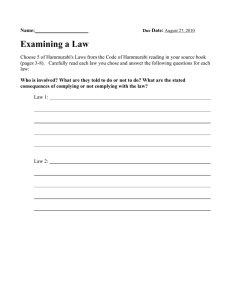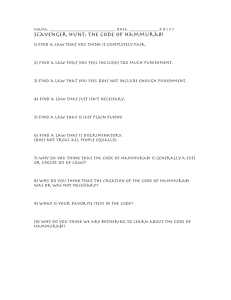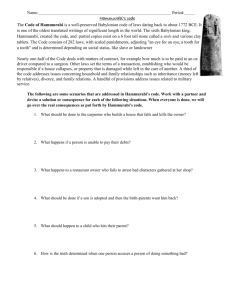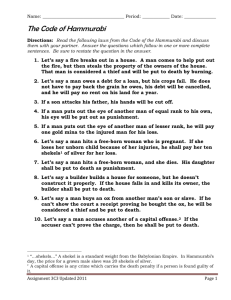Chapter 2 section 1 cont..ppt
advertisement
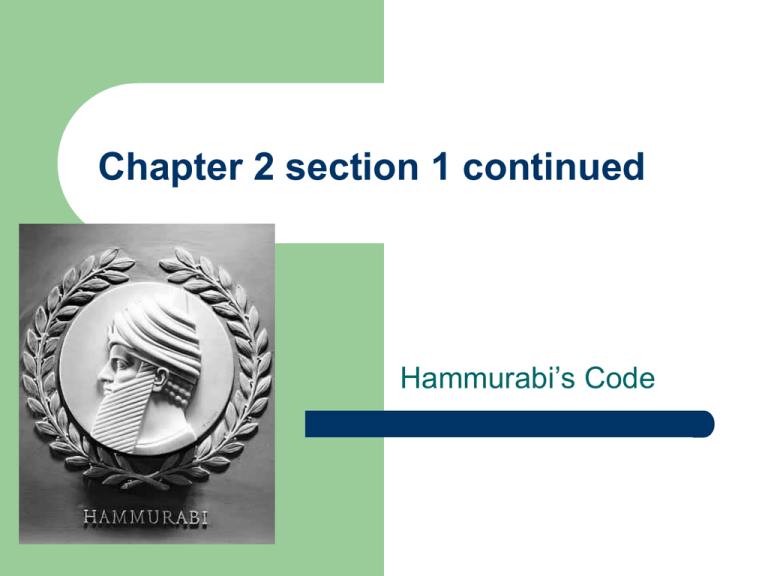
Chapter 2 section 1 continued Hammurabi’s Code ?????’s 1.Why are rules/laws necessary? 2. Can societies be successful without rules? 3. Do you believe in the death penalty? 4. Would you support harsher laws in the United States today? What is this referring to? Ruling a Large Empire (DNWTD) Invasion and conquest were common in ancient Middle East Time after time, nomadic people or ambitious warriors descended on the Fertile Crescent Powerful leaders, created powerful, well organized empires bringing peace and prosperity to the region. Many looted and burned, some stayed and ruled The first Empire builder 2300 B.C. Sargon, the ruler of Akkad, invaded and conquered the city-states of Sumer Built the first Empire in history (Akkadia) Did not last long, after his death invaders come into his empire and brought it to ruins QuickTime™ and a YUV420 codec decompressor are needed to see this picture. Hammurabi In 1700 B.C. the king of Babylon, Hammurabi brought most of Mesopotamia under his control. Published a set of laws in order to unite Babylonian society together known as Hammurabi’s code. (first written law code in history) Wanted people to know the legal principles of government Had Artisans carve the 300 laws on a stone pillar for all to see Crime and Punishment -Hammurabi's code was the first major collection of laws in history "eye for an eye" and "life for a life" types of punishments Examples of Hammurabi’s code If any one is committing a robbery and is caught, then he shall be put to death. If fire break out in a house, and some one who comes to put it out cast his eye upon the property of the owner of the house, and take the property of the master of the house, he shall be thrown into that self-same fire. More examples.. If any one strike the body of a man higher in rank than he, he shall receive sixty blows with an ox-whip in public. Hammurabi’s code showed that there was a division amongst classes If the slave of a freed man strike the body of a freed man, his ear shall be cut off. If a man strike a free-born woman so that she lose her unborn child, he shall pay ten shekels for her loss. If the woman die, his daughter shall be put to death. Laws for Women (DNWTD) Hammurabi's code did try to protect the powerless, including women and slaves Could divorce Could own property The code expected women to remain in their husband's home and dependent on him The husband had to support his wife Father had unlimited authority over the children Other steps taken by Hammurabi to unite the Empire: Irrigation Well trained army Had temples repaired
